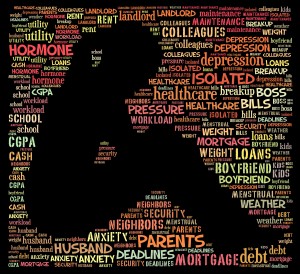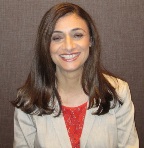8/12/14
This is the second article from Kooshay Malek, a blind therapist in Los Angeles. Her first article, The Habit of Seeing, discussed losing her vision and her choice of becoming a marriage and family therapist. Here she discusses at how she uses her vision loss to help her patients.
When I started as a therapist, I was really concerned about my blindness. I had faced prejudice in other jobs. With my first few clients, I gave them this whole spiel at the beginning, explaining about being blind and about why I wear dark glasses. My supervisor said not to work so hard to explain. He thought it was a nonissue: “If you were blonde and blue-eyed, would you be describing that over the phone to them?” he asked. He was right. It didn’t faze most people. In the 11 years I’ve been practicing, only a few people had a problem with it. To this day, once in a while, it may come out organically that I’m blind. Most of the time, I don’t tell them beforehand.
My supervisor said not to work so hard to explain. He thought it was a nonissue: “If you were blonde and blue-eyed, would you be describing that over the phone to them?” he asked. He was right. It didn’t faze most people. In the 11 years I’ve been practicing, only a few people had a problem with it. To this day, once in a while, it may come out organically that I’m blind. Most of the time, I don’t tell them beforehand.
I think I pick up on certain nuances sighted therapists may miss. I sense shifts in energy in the room. I have very strong attunements: I notice the slightest change in tone of voice — or even in their silences — and I know something’s going on. If necessary, we talk about my blindness, and we process my blindness in the session. I don’t leave it as an elephant in the room. The main concern of everybody who comes to therapy, whether they are seeing a blind person or not, is, “Am I going to be heard and understood?” In this case, they may wonder if my blindness will affect whether I can hear and understand them. I say: “Well, we’ll have to wait and see. If there is something you think I can’t understand, would you be able to tell me?” That makes them self-sufficient in asking for help or expressing a need. Many patients tell me they find it so much easier to talk to me, because I don’t have my eye on them, so to speak, like a microscope. They find it close to the traditional psychoanalyst’s couch, where the therapist would sit behind them and not look at their face. They find out I see them better than anyone else in their life. That’s the reward of it. Especially with clients who have self-image and self-esteem issues. I get to see who is inside, not who is outside, and that’s powerful by itself. People open up more easily. My blindness is a really quiet, subtle intervention in the room at all times. It’s always present. It’s a gift I carry in there with me, and I use it.
 Kooshay Malek
Kooshay Malek
Marriage and Family Therapist
Los Angeles, CA

